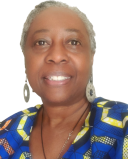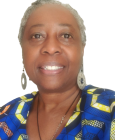Dreaming
Sleeping and Dreaming a Different You
A conscious experience of our dreaming self.
Posted July 10, 2024 Reviewed by Lybi Ma
Key points
- Recalling a conscious memory is important to re-establish accurate awareness after dream sleep.
- Culture influences the mind and the brain's processing of information such as dream content.
- In Black Seminole culture, warrior women, are referred to as keepers of dreams and visions.
- When dreams are not lucid, the brain's interpretation can be unclear and culturally meaningful.
Where Am I? Who Am I?
Peter Gärdenfors described his personal experience of a state of consciousness in which his cognitive connection to the world was temporarily broken when he first awakened. The result: A feeling of knowing who he was but not where he was upon immediately waking from a dream. He also discussed the important role of conscious memory in the re-establishment of his awareness of his location in the world upon awakening. While this experience is not uncommon among humans, he mentioned another cognitive experience too that is less frequent but real: a lack of cognitive awareness of one's identity upon initially waking from sleep. Again, Gärdenfors mentions the role of a relevant memory in bringing oneself back to a sense of self. But what can cause these occurrences of waking up as a stranger to oneself, or waking up with a sense of We rather than having an I-You distinction? Gärdenfors wrote that we cannot awaken with a conscious awareness of being a We. I assert that we can.

Dreaming Another Cultural Reality
Culture influences the mind and the brain's processing of information such as dream content. In cultures such as the Black Seminole, warrior women are referred to as keepers of dreams and visions through reviving and sustaining ancient African customs (Mock, 2021). Also, non-western approaches to psychology teach a concept known as the extended self which comprises a self that is one's family and community, one's ancestors, and yet-to-be-born beings. Someone of such a worldview might experience during dreaming or awakening from sleep, a consciousness of a We, awakening with a sense of a collective self. This might also manifest as the experience of being in another space or time.
This could also explain a sense of being a different or unrecognizable You.
When dream experiences are hazy rather than lucid, there is less likelihood that the brain will be able to discriminate between externally and internally generated activities; this could then increase susceptibility to reality-monitoring confusion or errors (Moo-Rung and Shih-k, 2022). Culture and the brain's processing combine to influence the perception of dream sleep. An outcome upon awakening could be questions such as: "Where am I?" Or even, "Where are we?" "Who are we?"
References
Mock, S. B. (2021). Dreaming with the ancestors: Black seminole women in Texas and Mexico (Race and culture in the American West #4). University of Oklahoma Press.
Moo-Rung, L. & Shih-k, C. (2022). Dream lucidity positively correlates with reality monitoring. Consciousness and Cognition, 105, https://doi.org/10.1016/j.concog.2022.103414


